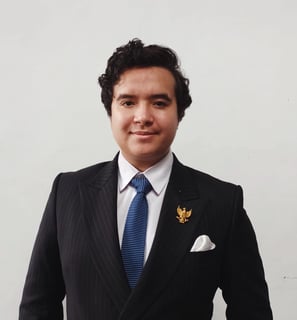Identifying Skills Local Communities Will Need in the Future World of Work in Geoparks
In order to future-proof the geopark economy, we must ensure that Human Capital Development continues to transform to meet the needs of future job markets.
INSIGHTPEOPLE STRATEGYOPERATIONS


Identifying Skills Local Communities Will Need in the Future World of Work in Geoparks
As the world continues to change and evolve, local communities within geoparks will face unique challenges and opportunities. The future of work in these areas hinges on the ability of individuals to adapt to new technologies, collaborate in multidisciplinary environments, and leverage the rich natural heritage of geoparks for sustainable development. This article explores the essential skills that local communities will need to thrive in the future world of work in geoparks.
Unique Talent Aspects (UTAs) and Key Skill Areas for the Future World of Work in Geoparks
In the future, communities within geoparks will need to develop a set of foundational skills that go beyond traditional environmental stewardship. These skills will empower them to embrace the opportunities presented by tourism, sustainable business practices, education, and conservation efforts.
In today’s fast-paced, ever-evolving work environment, organizations are increasingly realizing that talent isn't just about technical expertise or experience alone. Rather, it's a combination of diverse skills, personal attributes, and cognitive abilities that shape an individual’s potential. To harness this potential effectively, businesses must look beyond traditional assessments and focus on what makes people truly stand out in a professional setting.
This is where our concept of Unique Aspects of Talent comes in (see Figure 1). These distinct traits encompass not only what people know but also how they think, interact, and apply their skills. This article explores the 10 key categories that form a comprehensive framework for understanding and cultivating talent in the workplace.
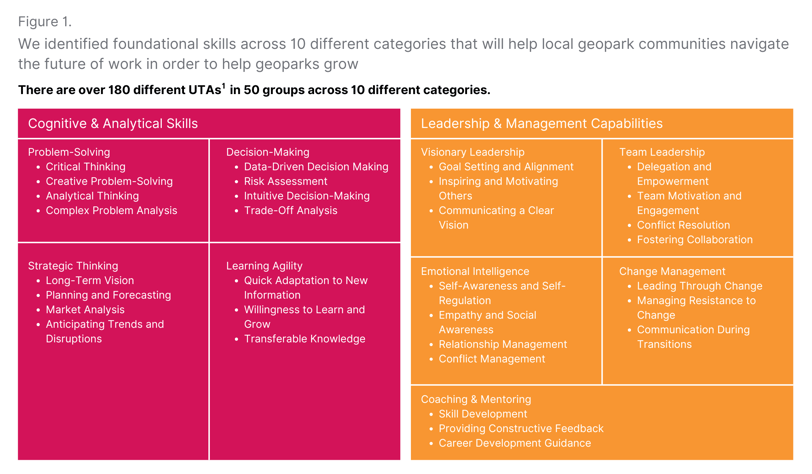

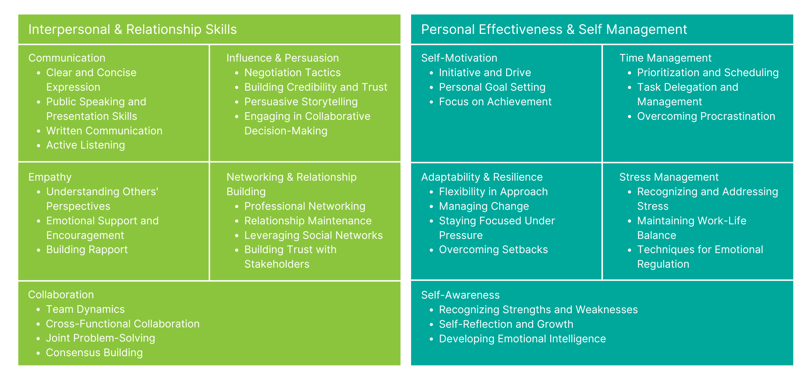


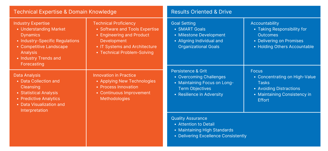
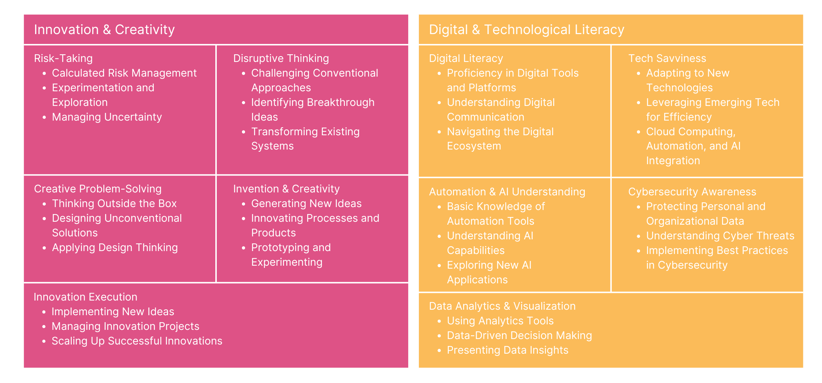

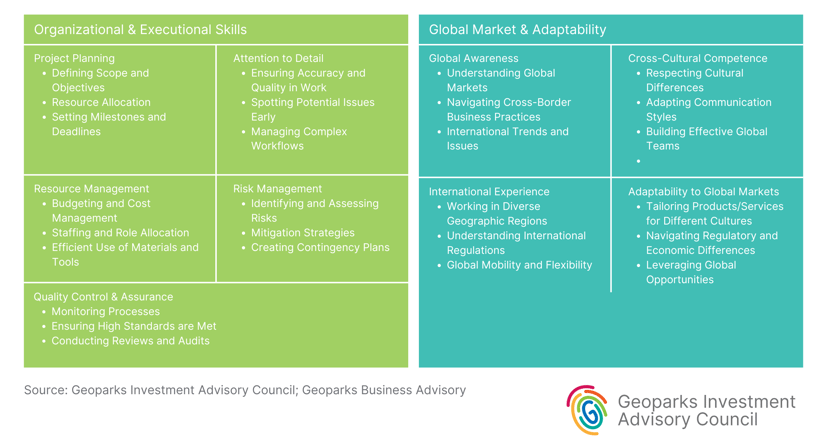

How Talents Shift under the Unique Prospects of the Geoparks Job Market
The skills required for working in geoparks are specialized and often interdisciplinary, focusing heavily on the intersection of science, conservation, tourism, education, and community engagement. While many of these skills are related to environmental and heritage management, they also involve a significant amount of public interaction, cultural sensitivity, and the ability to convey complex geological concepts to a broad audience. In contrast, the general job market tends to focus more on industry-specific technical skills, with less emphasis on this unique blend of scientific knowledge and public engagement.
Environmental Literacy and Sustainability Skills
Critical thinking in environmental management: Geoparks are unique spaces where conservation and economic development must coexist. Local communities will need to develop skills in sustainable tourism management, habitat restoration, and natural resource conservation.
Understanding ecosystem services: Communities will need to be equipped with knowledge about the ecosystems they are managing and the services these ecosystems provide, such as water filtration, carbon sequestration, and biodiversity.
Circular economy principles: As part of their efforts to preserve natural resources, local communities will need to learn how to minimize waste, reuse materials, and create closed-loop systems that support both their environment and economy.
Digital and Technological Competence
Digital tools for environmental monitoring: The use of digital technologies for monitoring and managing natural resources will become increasingly important. Local communities will need skills in data collection, analysis, and visualization using platforms like GIS (Geographic Information Systems) and remote sensing.
E-commerce and digital marketing for local businesses: Many geoparks rely on eco-tourism and local handicrafts for income generation. Communities will need to develop skills in digital marketing, e-commerce, and social media management to reach a global audience and promote sustainable tourism offerings.
Sustainable technology innovations: Understanding and applying green technologies, such as renewable energy solutions (e.g., solar, wind) and sustainable agriculture techniques, will be critical in shaping geopark economies.
Cultural and Community Engagement Skills
Interpersonal and communication skills: Local communities must be able to effectively communicate with visitors, stakeholders, and each other. These skills will be critical in fostering positive relationships with tourists, local governments, and environmental organizations.
Cultural preservation and education: As stewards of the land, local communities will need to engage in practices that preserve and promote their cultural heritage. Skills in heritage interpretation, storytelling, and educational programming will be key in attracting tourists and educating future generations about the significance of their geopark.
Collaboration with multi-stakeholder groups: Geoparks often involve partnerships between local governments, NGOs, scientific institutions, and businesses. Local communities will need to learn how to navigate these relationships and contribute to joint efforts aimed at sustainable development.
Entrepreneurship and Economic Development Skills
Tourism and hospitality management: Geoparks rely heavily on eco-tourism, and local communities must be prepared to meet the demands of a growing, environmentally conscious tourism industry. Training in tourism management, hospitality, and customer service will be vital for creating an inclusive, high-quality visitor experience.
Developing sustainable local businesses: Beyond tourism, geopark communities can benefit from diversifying their economies. Skills in business development, financial literacy, and sustainable agriculture can help communities create thriving, diverse economies that support both the people and the environment.
Grant writing and project management: To secure funding for sustainable development initiatives, local communities will need to develop skills in writing proposals, managing projects, and engaging with international and national funding sources.
Resilience and Adaptability Skills
Crisis management and disaster preparedness: Geoparks, often located in areas vulnerable to climate change and natural disasters, will require local communities to develop skills in risk assessment, crisis response, and long-term disaster recovery planning.
Flexibility in the face of change: The ability to adapt to shifting tourism trends, climate challenges, and global market fluctuations will be critical for the ongoing success of geopark communities. Training in adaptability and resilience will enable communities to thrive despite uncertainties.
Recommendations for Equipping Local Communities with the Necessary Skills
To ensure that local communities within geoparks are prepared for the future world of work, several steps need to be taken:
Reforming Education and Training Systems
Update local curricula to include environmental education, digital literacy, and sustainable tourism. Educational programs should emphasize both hard and soft skills, such as ecological literacy, digital tools for sustainability, and effective communication strategies.
As we look ahead to the future of work in geoparks—areas of natural significance that combine environmental, cultural, and historical value—it's clear that the landscape of skills needed by local communities is changing. Geoparks offer a unique opportunity for communities to thrive by embracing the intersection of sustainability, cultural heritage, and economic development.
To support this future, it's essential to reform education and training systems to prepare communities with the right blend of skills that are future-ready. This means not only updating local curricula but also ensuring that these new programs foster the Unique Aspects of Talent that will be needed in the evolving world of work. These talents will bridge the gap between natural conservation and community prosperity, helping create a workforce that is adaptable, innovative, and resilient in the face of changing global dynamics.
Promoting Lifelong Learning and Skills Development
As the future of work continues to evolve, particularly in the context of geoparks, lifelong learning will play a crucial role in ensuring that local communities remain adaptable, innovative, and prepared for the opportunities and challenges ahead. Geoparks present a unique opportunity to not only protect natural and cultural heritage but also to foster economic development through tourism and sustainable practices. By promoting continuous learning through tailored training programs, communities can develop the Unique Talent Aspects that will enable them to thrive in an ever-changing world.
For communities in geoparks, the future of work will depend on their ability to stay ahead of global trends, adapt to new technologies, and respond to the evolving needs of the tourism industry. Therefore, training programs must emphasize digital literacy, entrepreneurial thinking, and sustainable practices—skills that are essential for maintaining the delicate balance between conservation and tourism development.
Lifelong learning initiatives should not be limited to formal education but must be integrated into every aspect of community life. Offering workshops, online courses, and community learning centers can create a network of continuous skill development that empowers individuals of all ages. These programs should not only focus on traditional skill sets but also foster adaptability and innovation, ensuring that individuals can respond to new challenges with creative, sustainable solutions.
Geoparks and businesses need to implement training programs that focus on continuous learning, especially for adults. Offer workshops, online courses, and community learning centers that teach skills in digital tools, sustainable practices, and entrepreneurial endeavors.
Strengthening Partnerships Between Local Governments, NGOs, and Educational Institutions
We want geoparks to be able to grow into centers of sustainable tourism and conservation, fostering strong collaborations between local governments, NGOs, and academic institutions becomes essential for the development of a skilled workforce. These partnerships can create tailored skill-building programs that address the unique needs of geopark communities, ensuring that local residents are equipped with the Unique Talent Aspects necessary for both the future world of work and the preservation of natural and cultural heritage. By combining expertise from various sectors, these collaborations can also attract critical funding for infrastructure and training initiatives, creating a supportive ecosystem that benefits the community, the environment, and the economy.
Local governments are uniquely positioned to drive the development of geoparks, but they need the support and expertise of NGOs (Non-Governmental Organizations) to ensure sustainability and inclusivity. These partnerships can help create comprehensive training programs that address pressing issues like eco-tourism, environmental conservation, and community-based development. NGOs often bring expertise in sustainable development and community engagement, which can complement the government’s efforts in creating policies that support both economic growth and environmental protection.
By fostering these partnerships, local governments can ensure that training programs are context-specific, aligned with the community's needs, and focused on long-term sustainability. NGOs can also provide additional resources, such as knowledge-sharing platforms, training materials, and on-the-ground expertise, that enhance the effectiveness of local educational programs. Together, they can focus on key areas like environmental stewardship, sustainable tourism, and green entrepreneurship, enabling local residents to become active participants in preserving and promoting the geopark.
Academic institutions, such as universities and technical colleges, have a crucial role to play in developing the talent needed for the future of geoparks. These institutions can offer research, expertise, and advanced training in areas such as ecology, sustainable tourism, data analysis, and digital technologies. Collaborations with universities and technical schools can ensure that local residents have access to the latest knowledge and tools needed to address challenges in natural resource management and tourism development.
By partnering with academic institutions, geopark communities can benefit from workshops, research programs, and internships that allow students and residents to collaborate on real-world projects. This partnership can also create a learning ecosystem where ongoing education is continuously integrated into the community’s development. Additionally, universities can help design tailored curricula that focus on both technical skills (such as GIS and environmental monitoring) and soft skills (such as leadership, entrepreneurship, and communication) that will help residents succeed in the geopark’s evolving economy.
One of the key benefits of these collaborations is the ability to attract funding for infrastructure and training initiatives. Partnerships with NGOs and academic institutions often open up opportunities for external funding from national and international organizations focused on sustainable development, conservation, and community empowerment. Local governments, by aligning their goals with these external funding sources, can secure the financial resources needed to develop and maintain geopark infrastructure, such as visitor centers, sustainable transportation systems, and educational facilities.
Moreover, collaborative efforts can also unlock funds for training initiatives designed to enhance the skill sets of local residents. These programs can be aimed at upskilling workers in areas like eco-tourism, sustainable farming practices, digital literacy, and green business development. By creating a unified vision for sustainable development, partnerships can attract more investment, ensuring that the local community receives the support it needs to thrive in a changing world of work.
Ensuring Access to Resources and Tools
In the rapidly changing landscape of geoparks, ensuring that local communities have access to the right resources and tools is essential for sustainable development. As geoparks strive to balance environmental conservation with economic growth, digital tools, learning resources, and funding opportunities must be accessible to all community members. By fostering access to these resources, local residents can develop the Unique Talent Aspects necessary to drive innovation, sustainability, and economic progress within their communities.
One of the key strategies to ensure equitable access is by promoting low-cost, open-source technologies. These technologies provide communities with the tools they need to address environmental challenges and enhance local livelihoods without incurring significant financial costs. Supporting these technologies makes it possible for communities to leverage the power of digital tools for sustainability, education, and entrepreneurship—enabling them to thrive in the future world of work.
In today’s world, digital tools are crucial for managing resources, tracking environmental data, and fostering economic development. Communities in geoparks can greatly benefit from accessible technologies like Geographic Information Systems (GIS), mobile apps for tourism management, and data analysis tools to monitor environmental conditions and manage natural resources. However, the high cost of proprietary technologies often limits their availability to these communities. By promoting the use of open-source software, communities can access powerful tools without financial barriers, enabling them to monitor ecosystems, manage tourism, and engage in sustainable land-use practices.
Digital platforms can be used to enhance community-based tourism, helping local residents manage visitor data, track trends, and offer a seamless experience for tourists while maintaining the park’s sustainability. Low-cost, open-source technologies can also be used to create educational resources and promote e-learning programs, allowing individuals to access training in digital literacy, sustainable tourism, and entrepreneurship from anywhere within the geopark, even in remote areas.
This makes access to learning resources a critical component of empowering local communities to acquire the Unique Talent Aspects needed for future success. By integrating digital education tools, online courses, and community learning platforms, geoparks can provide individuals with ongoing opportunities to develop both hard skills (like technical expertise) and soft skills (such as leadership, communication, and problem-solving).
Local communities can benefit from resources such as e-books, tutorial videos, and interactive workshops that teach valuable skills related to sustainable tourism, eco-friendly business practices, and environmental conservation. These resources must be made easily accessible and affordable, particularly for adults seeking to enhance their skill sets. Providing open-access online courses or local community centers where residents can access digital resources will promote lifelong learning and create a foundation for continuous skill development.
While access to digital tools and learning resources is essential, cost-effective solutions are also necessary for ensuring that communities can implement these tools without financial strain. By promoting open-source technologies, geoparks can provide communities with the means to adopt innovative solutions without incurring the high costs of proprietary software and hardware.
Open-source platforms for environmental monitoring, tourism management, and community engagement offer flexible, customizable solutions that can be adapted to meet the unique needs of each geopark. These tools are often backed by active community support, enabling users to share knowledge and best practices. Communities can also collaborate on the development and enhancement of these open-source tools, further reducing costs and increasing accessibility.
Additionally, the use of low-cost digital solutions—such as solar-powered devices for monitoring remote areas or affordable mobile apps for connecting tourists with local guides—can significantly reduce financial barriers to the adoption of new technologies. These solutions not only promote sustainability but also empower local communities to take control of their development.
Finally, ensuring access to funding is crucial for the successful implementation of these tools and resources. Geoparks need sustainable financial support to acquire technologies, develop educational programs, and create the necessary infrastructure for community development. Collaborative efforts between local governments, NGOs, and academic institutions can help attract funding from national and international sources focused on sustainable development, conservation, and community empowerment.
By leveraging crowdfunding and micro-grants, local communities can directly fund specific projects related to skill-building, technology adoption, or environmental conservation. Access to grants and financial resources can also support the development of community-based businesses or eco-tourism initiatives, which will provide ongoing income for residents while ensuring that the geopark remains a sustainable and attractive destination for visitors.
Fostering a Culture of Innovation
In geoparks, the intersection of environmental sustainability and economic development offers a unique opportunity to foster a culture of creativity and innovation. To thrive in the future world of work, local communities must be encouraged to think creatively, experiment with new ideas, and adopt sustainable business models that align with the values of the geopark. Fostering a culture of innovation is not only about embracing new technologies, but also about empowering individuals to develop entrepreneurial ventures that promote both ecological conservation and economic prosperity.
By creating an environment where locals feel supported in pursuing innovative ideas, geoparks can drive entrepreneurship that sustains the community’s economic growth while maintaining a commitment to environmental stewardship. This culture of innovation can lead to new, creative solutions for challenges such as tourism management, resource conservation, and local business development, all while preserving the unique natural and cultural heritage of the geopark.
To foster innovation, geoparks need to encourage a mindset where locals feel safe and supported in experimenting with new ideas. Workshops, innovation hubs, and incubators can provide the space and resources for residents to brainstorm and test creative solutions to local challenges. These initiatives should focus on fostering out-of-the-box thinking that blends modern technology with traditional knowledge, promoting solutions that are not only innovative but also sustainable.
Encouraging experimentation means accepting failure as part of the creative process. Whether it’s testing new eco-tourism practices, experimenting with green technologies, or developing alternative livelihoods, fostering a space where failure is seen as a stepping stone will encourage locals to take risks and think creatively. Programs designed to promote this mindset can include design thinking workshops, hackathons for sustainable solutions, and collaborative innovation challenges focused on the future of geopark development.


A photo of a person learning in a classroom.
Conclusion
The future of work in geoparks presents both challenges and exciting opportunities for local communities. By fostering skills in environmental stewardship, digital literacy, community engagement, entrepreneurship, and resilience, these communities will be better equipped to thrive in the face of a rapidly changing world. Through strategic investment in education, training, and collaboration, geopark communities can secure a sustainable and prosperous future that respects their unique cultural and natural heritage.
Diemas Sukma Hawkins
Diemas Sukma Hawkins is a Senior Associate at the Geoparks Investment Advisory Council (GIAC), where he leads the Business Advisory Capabilities for Climate Change and Sustainability. He also supports GIAC’s initiatives in Organizational Strategy, Philanthropy, and Social Impact, and serves as Principal Industry Advisor for Agribusiness and Food, Commodities and Trade, and Spa and Wellness sectors. Previously, Diemas contributed to Indonesia’s national development as an Energy Policy Analyst at the Ministry of National Development Planning (Bappenas) and the Coordinating Ministry for Maritime Affairs and Investment. He also held the role of Secretary General of the Indonesian Geoparks Youth Forum (IGYF), a youth-led organization focused on sustainable development in geopark communities. Diemas has also served as an Investment Fellow at Stella Capital, further broadening his expertise in strategic advisory and investment.
